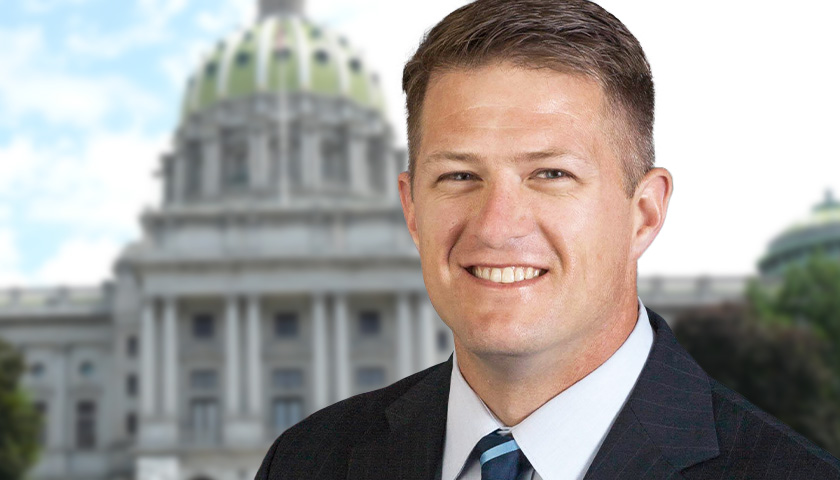Pennsylvania State Representative Timothy O’Neal (R-Washington) has indicated he’s drafting legislation to bestow tax credits on power plants to cover costs of complying with the Regional Greenhouse Gas Initiative (RGGI).
Pennsylvania is among 11 northeastern and mid-Atlantic states to have joined RGGI, a compact to levy de facto taxes on electricity-generation facilities for emitting greenhouse gases – chiefly carbon dioxide and methane – which are associated with global warming. Because Keystone State legislators have balked at the program, Governor Tom Wolf (D) announced in 2019 that he would enter the state into it using his own regulatory authority. Earlier this month, Pennsylvania’s Republican-controlled Commonwealth Court blocked the state’s entry into RGGI, insisting that Wolf breached the limits on his executive power, but the ruling is not ironclad, as the Democrat-run state Supreme Court could reverse it.
Should RGGI take effect, O’Neal hopes his proposal to help offset the initiative’s costs will prevent future fossil-fuel plant closures in the commonwealth. Coal plants have been closing across the nation, including Cheswick Generating Station, northeast of Pittsburgh, which ceased operations last month. Plant operators often cite environmental rules as a reason for closing.
And while the booming natural gas industry has filled much of the void and positioned Pennsylvania as the largest net exporter of electricity among states, RGGI would potentially threaten many gas-fired facilities as well. This is despite increased natural gas usage contributing to a decrease of 72.3 million tons in Pennsylvania’s carbon discharge over the last dozen years – nearly as great a decrease as all other RGGI member states combined had achieved.
In a memorandum asking fellow lawmakers to cosponsor his measure, O’Neal warned that forcing power plants to bear the initiative’s costs will kill many high-paying jobs and deprive the commonwealth as well as many municipalities and school districts of business and income tax revenue. He also expressed worry that residents and employers will be forced to endure higher electricity expenses at a time when inflation already rages in Pennsylvania and throughout the U.S.
“To mitigate the negative effects of the governor’s actions to subject Pennsylvania to RGGI, I plan to introduce legislation that will allow eligible taxpayers to apply for a tax credit equal to the full amount of the RGGI taxes they are forced to pay in order to comply with the program,” the representative wrote. “By providing this relief, it is my hope that we can reverse the loss of job opportunities and economic activity that Pennsylvania will assuredly, and frankly voluntarily, be surrendering to neighboring states by joining RGGI.”
According to an analysis by the Delaware-based Caesar Rodney Institute (CRI), Pennsylvania’s participation in RGGI could come at a cost of $50 billion in economic activity and a loss of more than 22,000 jobs between 2022 and 2030. The institute also anticipates that the revenue Pennsylvania stands to gain through the sale of emission allowances would be exceeded by income tax and corporate tax revenue losses.
Moreover, CRI does not expect RGGI to lower overall carbon emissions but instead to prompt Pennsylvania’s neighboring states of Ohio and West Virginia, both of which produce coal and natural gas, to pick up the slack in meeting demand for electricity.
RGGI supporters have raised concerns about flooding, droughts and heat waves they say will worsen if the greenhouse gas emissions that exacerbate global warming aren’t significantly cut. Yet the CO2 Coalition, a national nonprofit chaired by Princeton physicist William Happer, notes that the size of flood crests, the severity of aridity and the extent of heat waves have all decreased over the last century.
– – –
Bradley Vasoli is managing editor of The Pennsylvania Daily Star. Follow Brad on Twitter at @BVasoli. Email tips to [email protected].
Photo “Tim O’Neal” by PA State Rep. Tim O’Neal. Background Photo “Pennsylvania State Capitol” by Ad Meskens. CC BY-SA 3.0.








